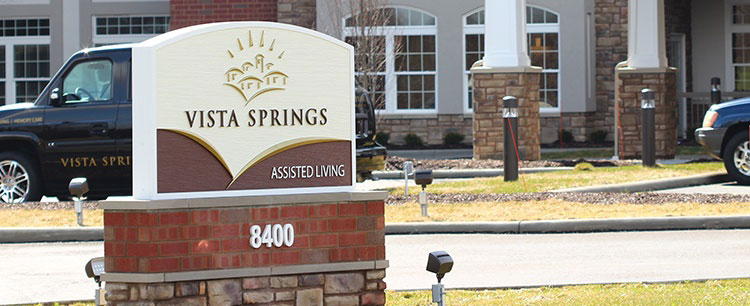On life’s journey, things change. As we age, health changes can affect the way we live and the amount of support we need. While the level of independence we desire may stay the same, it’s not always possible to maintain. Watching a loved one go through these changes may be difficult, and we want to ensure they can live where they want, with the amount of independence they desire, while still having their needs met during each stage. This is called “Aging in Place.”
When looking into living arrangements for an aging loved one, it’s important to consider not just what life looks like in their current stage, but what it will look like down the road. How many times will they have to move if their health needs change? When one assisted living facility can offer all the services they’ll need during each stage of their journey, without requiring moves or major changes, that’s a great way to age in place.
Start With Short-Term
Short-term, or respite, care is great when a loved one is still able to stay in their home but may need extra care from time to time. Whether it’s simply a place to stay while a caregiver is out of town, or if extra services like special diets, bathing, reminders/prompting are needed, choosing a facility that offers respite care is a great way to introduce a loved one to the possibility of more permanent care in the future.
Independent and Active
When short-term care isn’t enough and an at-home caregiver is no longer a possibility, a long-term option may be the solution. But if a loved one is still independent and active, they’ll want a community that honors that independence and allows them to thrive while providing a safe environment for them to live fully. A great facility will not only provide a place for them to thrive but will encourage residents to live their fullest lives through activities, outings, and engagement.
Assistance for Life’s Challenges
When the tolls of aging start to take over and independence becomes limited and more care is required, it’s a comforting thought for the aging and their families to know that when they need more care, they won’t have to change communities. When an individual is in a facility that adapts to their needs as they change, the surroundings and people that have become familiar to them won’t change just because their health does.
Memory Care
When those changes in health include a decline in memory or Alzheimer’s or dementia, it’s even more important that residents can maintain a certain level of familiarity while still receiving the care they require. Facilities that provide this type of care, as well as independent living facilities, offer a unique experience in the fact that if the level of needed escalates, they may only need to move to a different building rather than a whole new community. The staff will be familiar with them and their families, and their surroundings will be familiar and comfortable.
Hospice
And, when it’s time to consider hospice care for a loved one, turning to a community or facility you already know and love can be a source of light in a difficult time. An abrupt change in surroundings isn’t what the resident or their family need during this stage of life so choosing a community, no matter their stage of life, that can provide care during all stages is an important step in ensuring a loved one can comfortably “age in place.”
An assisted living facility that provides transitional housing, like certain Vista Springs locations, can be a comfort to the residents and their families, providing support and comfort during all stages of life’s journey and allowing their residents to comfortably “age in place.”





